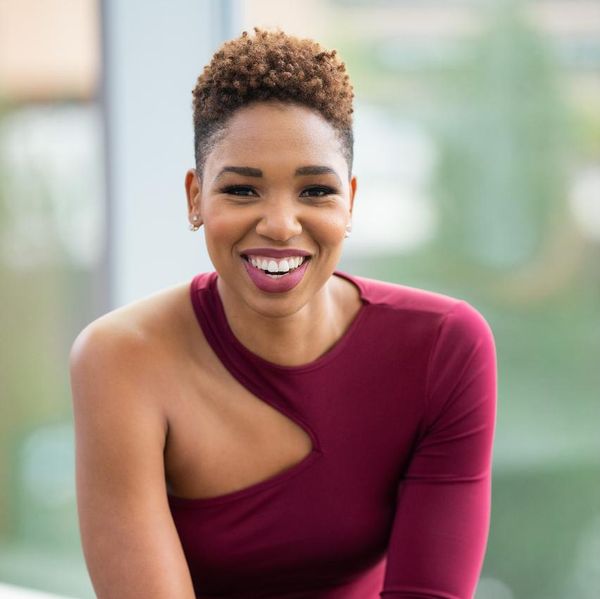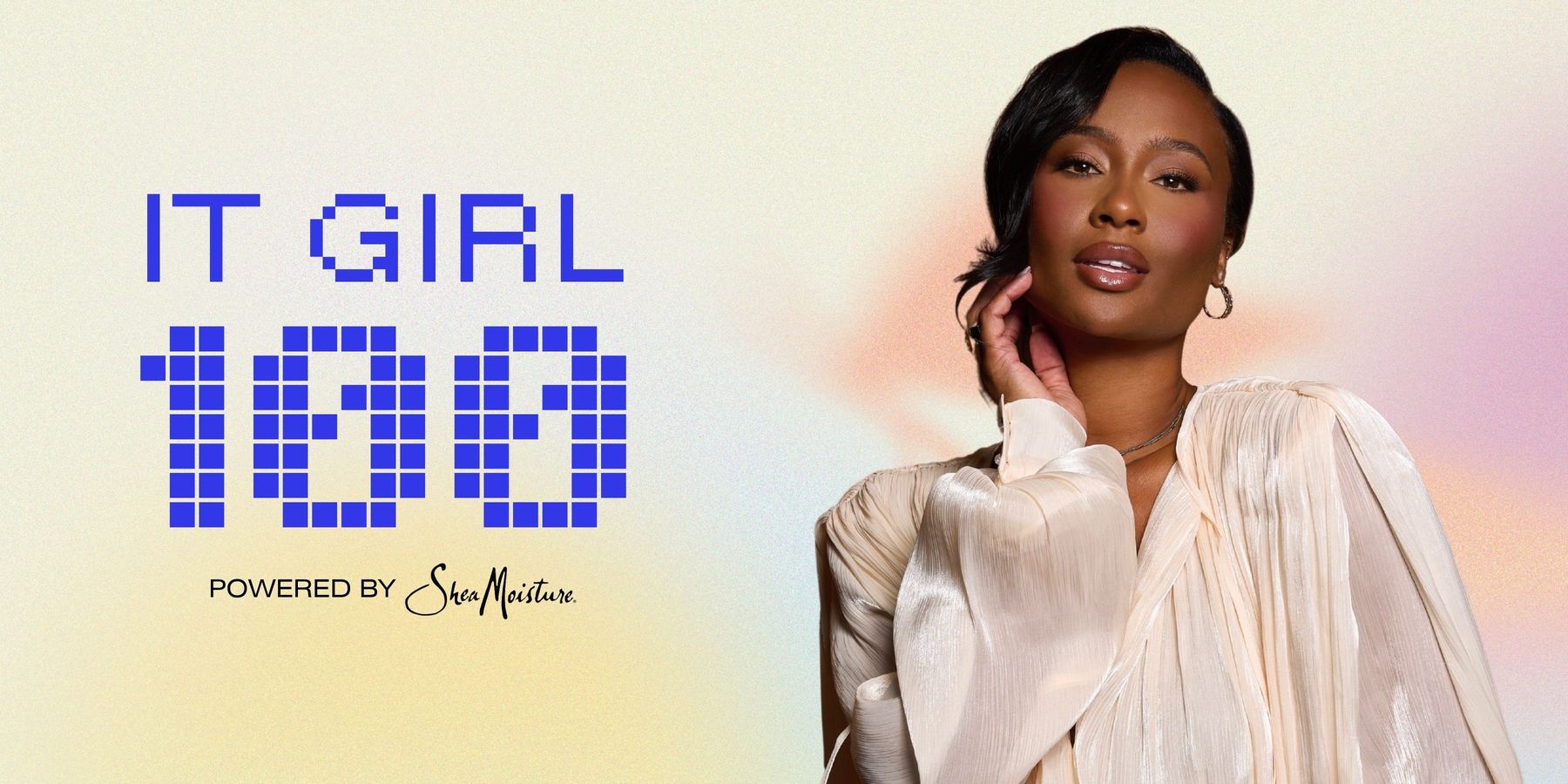Creative Entrepreneur Ri Turner On How Intentional Self-Care Leveled Up Her Life & Her Healing

Creative entrepreneur Ri Turner knew exactly what she was doing when she named her wellness brand "for the healthy hoes." The initiative has spawned merch, a community, and a podcast that is all about healing through the safe space of community. In a world where the wellness space can seem sometimes Lilly white and accessed by few due to differences in race, privilege, status, and money, "for the healthy hoes." speaks to the everyday human and makes the journey to healing accessible to all.
At 31, the Arkansas-based creator is all about health being wealth, but also about not needing money or a certain status to be well in life. For Ri, it's wellness, but keep it casual, and that is something we can get behind.
The seed of her online presence was planted in her college days, where Ri says she first fell in love with the process of video content creation. "As I continued to grow and evolve, there was a pivot in my content," she tells xoNecole. "This ultimately led me to creating a podcast where I share pieces of my journey and just have everyday conversations that I would otherwise be having with my partner or myself. What I do for a living isn't a surprise or shock to me at all. I've always known since I was super young that I would somehow connect with the world on a larger scale and build community. I am beyond grateful."
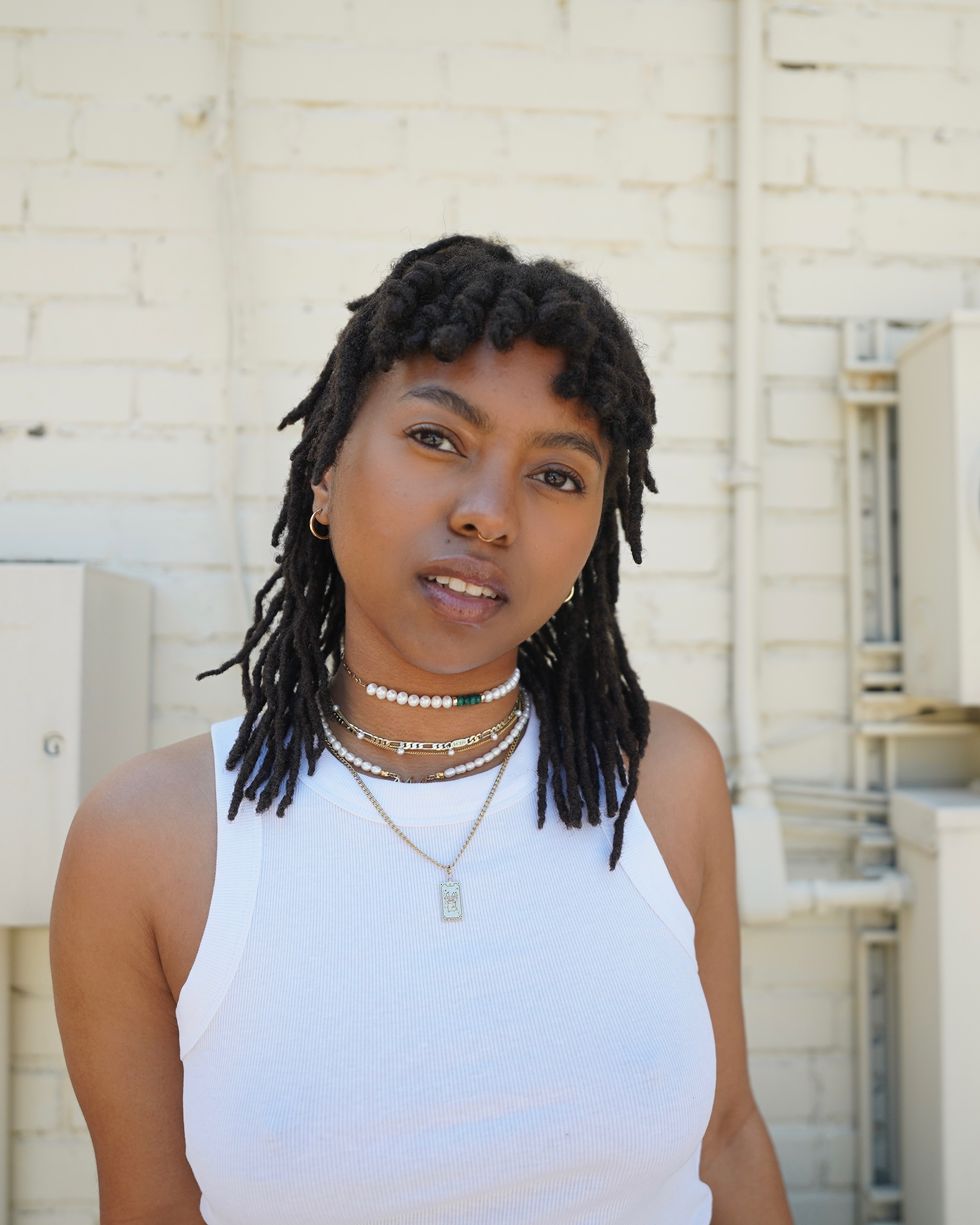
Ri Turner
Courtesy of Ri Turner
As a creative, podcaster, and wife, Ri's online presence is centered around the pillars of consciousness, health, and wellness. If she isn't sharing her perspectives through relatable chats on her "for the healthy hoes." podcast, she is sharing snippets of her life through reset vlogs on her YouTube channel and day-in-my-life videos where her peace radiates through the screen. Ri admits that self-care transformed her life, and it is a message that she shares through the content she produces. Through the gems she has collected in her healing journey, she hopes to connect and help with the healing of others.
In this installment of xoNecole's Finding Balance, we chat with the wife and podcaster about how she spends her mornings, navigating uncertainty, and cooking as the ultimate form of self-care.
Q: How has practicing self-care helped you become a better person?
A: Practicing self-care has completely transformed my life. Simple things like eating well, daily movement, and meditation has helped me get through so many obstacles and challenges. These practices completely changed my perspective on how to approach life. Instead of suppressing my feelings and running away from myself, I now feel everything and embrace all of me with open arms. This has truly allowed me to begin to be the best version of myself.
Q: What is the best advice you could give your younger self on how to navigate your 20s and 30s?
A: F*ck up. Learn from it. Grow from it. Don't force anything at all. Just flow. Embrace the change. It's all part of the plan. Everything is going to work out.
Q: At what point in your life did you understand the importance of pressing pause and finding balance in both your personal and professional life?
A: Breaks are so so so important. It took me a minute to realize it, probably only about a year or two ago in the midst of grind culture. Everything and everyone around us tells us to grind, work, be busy 100 percent of the time. But doing anything, even something you love ALL THE TIME and without breaks, can cause so much burnout.
It'll have you second-guessing if you really love this thing that you thought you loved so much. When in all actuality, all you needed was to press the pause button for a bit. I do not play about my breaks. When I come back from taking a pause, I'm so inspired, refreshed, and ready to work. And that's the point.
"When I come back from taking a pause, I'm so inspired, refreshed, and ready to work. And that's the point."
Q: What is a typical day in your life? If no day is quite the same, give me a rundown of a typical work week and what that might consist of.
A: No day is the same. But my work week typically looks like brainstorming and finding inspiration (this could be from my lived experiences or even Pinterest) as well as tons of recording content for my podcast and socials, editing, meetings, working on partnerships with brands, working on designs, or even shipping out orders. Some weeks my workload is heavier, and sometimes it is lighter. I appreciate both!
Q: What are your mornings like?
A: Mornings are my favorite part of the day. I wake up before anyone else in my home does. Before I do anything, I meditate for 5-10 minutes and express gratitude for what I do have and for what's already mine that I cannot see. Lately, I've been going on runs (such an amazing feeling). After my run, I make a smoothie, shower, and get ready for my work day.
Q: How do you wind down at night?
A: Believe it or not, cooking dinner is part of my wind-down routine. Cooking is so relaxing and can really be a meditative experience if you allow it to. After I eat dinner with my family, I do my skincare routine (which is like 2-3 steps) then I like to read and spend time with my family. This usually looks like us all being in the same room, engaging in casual conversation while still all doing our own thing.
Q: When you have a busy week, what’s the most hectic part of it? What techniques or tools do you have in place to maintain your sense of self amid chaos?
A: Although I do many things all on my own, like filming myself, editing, etc., none of it is actually challenging for the most part because I've been doing these things for so long. It becomes challenging when my workload increases, and it seems as if there isn't enough time in the day to complete my tasks. What has really helped me out with this a ton is planning. I have always loved planning and writing down my daily/weekly to-do lists. I would be lost without my planner.
Additionally, just taking one step at a time and tying not to think about everything that I have to do because when you think about every single task [at once], it can be super overwhelming. And I find that I actually get nothing done at all because I was trying to do everything. So definitely just focusing on one small thing at a time, and if I'm unable to work through my entire list today, that's okay. I can get to it tomorrow.
Q: Do you practice any types of self-care? What does that look like for you?
A: Self-care can be such a vague term, especially with the up-and-coming popularity of wellness. Although I love things like skincare, my favorite self-care practices are things like meditation, yoga, journaling, cooking myself a wholesome meal, drinking plenty of water, or even writing a love letter to myself.
Q: Oftentimes, when we hear talk about love languages, it is how we give love to others. What is your self-love language, and how do you give that to yourself?
A: I think my love languages are words of affirmation and acts of service. I've had to re-wire my brain because there used to be so much negative self-talk up top. I've made it a priority to speak really nice to myself and just be gentle with myself- which is ultimately words of affirmation. I also love to cook for myself. I believe that this is one of the highest forms of self-love. When you intentionally carve out the time to make sure that you are consuming nourishing meals, that's a form of love that can't be matched. These are two main ways I show self-love and show up for myself.
"When you intentionally carve out the time to make sure that you are consuming nourishing meals, that's a form of love that can't be matched."
Q: When you are going through a bout of uncertainty or feeling stuck, how do you handle it?
A: I simply take a step back. This allows me to look at things from a different perspective and remember why I even started in the first place. Going back to my "why" has gotten me through so much uncertainty and helps me see the bigger picture.
Q: Lastly, how do you define "balance" in your life? What does that look like to you in an ideal world? What does that look like in reality?
A: Nothing in this world flows without balance. Balance is defined by the Oxford Dictionary as "an even distribution of weight enabling someone or something to remain upright and steady." I couldn't agree with this definition more. Not only in the physical sense but also in the literal sense. Without the necessary amount of balance, not much is stable. This is why when I'm overworked or inconsistent with my spiritual practice, my mental health begins to spiral.
Balance to me looks like taking care of your mind, body, and spirit first so that you can effortlessly show up in this world to positively impact those around you.
For more of Ri, follow her on Instagram @riturnerr and listen to new episodes of the "for the healthy hoes." podcast here.
Featured image courtesy of Ri Turner
Exclusive: Viral It Girl Kayla Nicole Is Reclaiming The Mic—And The Narrative
It’s nice to have a podcast when you’re constantly trending online. One week after setting timelines ablaze on Halloween, Kayla Nicole released an episode of her Dear Media pop culture podcast, The Pre-Game, where she took listeners behind the scenes of her viral costume.
The 34-year-old had been torn between dressing up as Beyoncé or Toni Braxton, she says in the episode. She couldn’t decide which version of Bey she’d be, though. Two days before the holiday, she locked in her choice, filming a short recreation of Braxton’s “He Wasn’t Man Enough for Me” music video that has since garnered nearly 6.5M views on TikTok.
Kayla Nicole says she wore a dress that was once worn by Braxton herself for the Halloween costume. “It’s not a secret Toni is more on the petite side. I’m obsessed with all 5’2” of her,” she tells xoNecole via email. “But I’m 5’10'' and not missing any meals, honey, so to my surprise, when I got the dress and it actually fit, I knew it was destiny.”
The episode was the perfect way for the multihyphenate to take control of her own narrative. By addressing the viral moment on her own platform, she was able to stir the conversation and keep the focus on her adoration for Braxton, an artist she says she grew up listening to and who still makes her most-played playlist every year. Elsewhere, she likely would’ve received questions about whether or not the costume was a subliminal aimed at her ex-boyfriend and his pop star fiancée. “I think that people will try to project their own narratives, right?” she said, hinting at this in the episode. “But, for me personally – I think it’s very important to say this in this moment – I’m not in the business of tearing other women down. I’m in the business of celebrating them.”
Kayla Nicole is among xoNecole’s It Girl 100 Class of 2025, powered by SheaMoisture, recognized in the Viral Voices category for her work in media and the trends she sets on our timelines, all while prioritizing her own mental and physical health. As she puts it: “Yes, I’m curating conversations on my podcast The Pre-Game, and cultivating community with my wellness brand Tribe Therepē.”
Despite being the frequent topic of conversation online, Kayla Nicole says she’s learning to take advantage of her growing social media platform without becoming consumed by it. “I refuse to let the internet consume me. It’s supposed to be a resource and tool for connection, so if it becomes anything beyond that I will log out,” she says.
On The Pre-Game, which launched earlier this year, she has positioned herself as listeners “homegirl.” “There’s definitely a delicate dance between being genuine and oversharing, and I’ve had to learn that the hard way. Now I share from a place of reflection, not reaction,” she says. “If it can help someone feel seen or less alone, I’ll talk about it within reason. But I’ve certainly learned to protect parts of my life that I cherish most. I share what serves connection but doesn’t cost me peace.
"I refuse to let the internet consume me. It’s supposed to be a resource and tool for connection, so if it becomes anything beyond that I will log out."

Credit: Malcolm Roberson
Throughout each episode, she sips a cocktail and addresses trending topics (even when they involve herself). It’s a platform the Pepperdine University alumnus has been preparing to have since she graduated with a degree in broadcast journalism, with a concentration in political science.
“I just knew I was going to end up on a local news network at the head anchor table, breaking high speed chases, and tossing it to the weather girl,” she says. Instead, she ended up working as an assistant at TMZ before covering sports as a freelance reporter. (She’s said she didn’t work for ESPN, despite previous reports saying otherwise.) The Pre-Game combines her love for pop culture and sports in a way that once felt inaccessible to her in traditional media.
She’s not just a podcaster, though. When she’s not behind the mic, taking acting classes or making her New York Fashion Week debut, Kayla Nicole is also busy elevating her wellness brand Tribe Therepē, where she shares her workouts and the workout equipment that helps her look chic while staying fit. She says the brand will add apparel to its line up in early 2026.
“Tribe Therepē has evolved into exactly what I have always envisioned. A community of women who care about being fit not just for the aesthetic, but for their mental and emotional well-being too. It’s grounded. It’s feminine. It’s strong,” she says. “And honestly, it's a reflection of where I am in my life right now. I feel so damn good - mentally, emotionally, and physically. And I am grateful to be in a space where I can pour that love and light back into the community that continues to pour into me.”
Tap into the full It Girl 100 Class of 2025 and meet all the women changing game this year and beyond. See the full list here.
Featured image by Malcolm Roberson
If there is one thing that I am going to do, it’s buy myself some scented soy candles. And, as I was looking at a display of them in a TJ Maxx store a couple of weekends ago, I found myself wondering just who decided which scents were considered to be “holiday” ones. The origin stories are actually pretty layered, so, for now, I’ll just share a few of ‘em.
I’m sure it’s pretty obvious that pine comes from the smell of fresh Christmas trees; however, scents like cloves, oranges, and cinnamon are attributed to two things: being natural ways to get well during the cold and flu season, and also being flavors that are used in many traditional holiday meals.
Meanwhile, frankincense and myrrh originate from the Middle East and Africa (you know, like the Bible does — some folks need to be reminded of that—eh hem — Trumpers) and ginger? It too helps with indigestion (which can definitely creep up at Thanksgiving and Christmas dinner tables); plus, it’s a key ingredient for ginger snaps and gingerbread houses. So, as you can see, holiday-themed scents have a rhyme and reason to them.
Tying this all in together — several years ago, I penned an article for the platform entitled, “Are You Ready To Have Some Very Merry ‘Christmas Sex’?” Well, in the spirit of revisiting some of that content, with a bit of a twist, I decided to broach some traditional holiday scents from the perspective of which ones will do your libido a ton of good from now through New Year’s Eve (check out “Make This Your Best NYE. For Sex. EVER.”).
Are you ready to check some of them out, so that, whether it’s via a candle, a diffuser, some essential oil, or some DIY body cream (check out “How To Incorporate All Five Senses To Have The Best Sex Ever”), you can bring some extra festive ambiance into your own boudoir? Excellent.
1. Vanilla
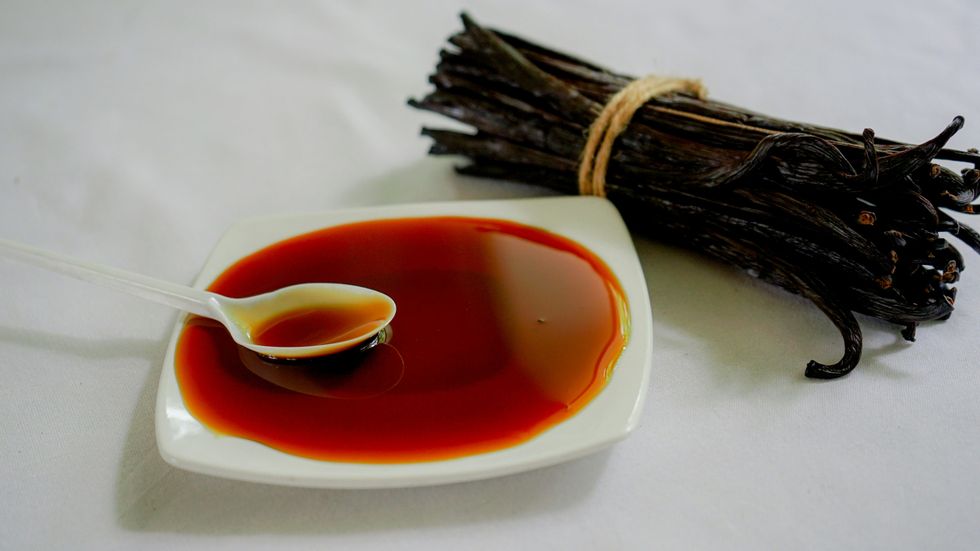
Unsplash
When it comes to holiday desserts, you’re going to be hard-pressed to find recipes that don’t include vanilla — and that alone explains why it is considered to be a traditional holiday scent. As far as your libido goes, vanilla is absolutely considered to be an aphrodisiac — partly because its sweet scent is considered to be very sensual. Some studies even reveal that vanillin (the active ingredient in vanilla) is able to increase sexual arousal and improve erectile dysfunction in men. So, if you adore the smell, here is more incentive to use it.
2. Frankincense
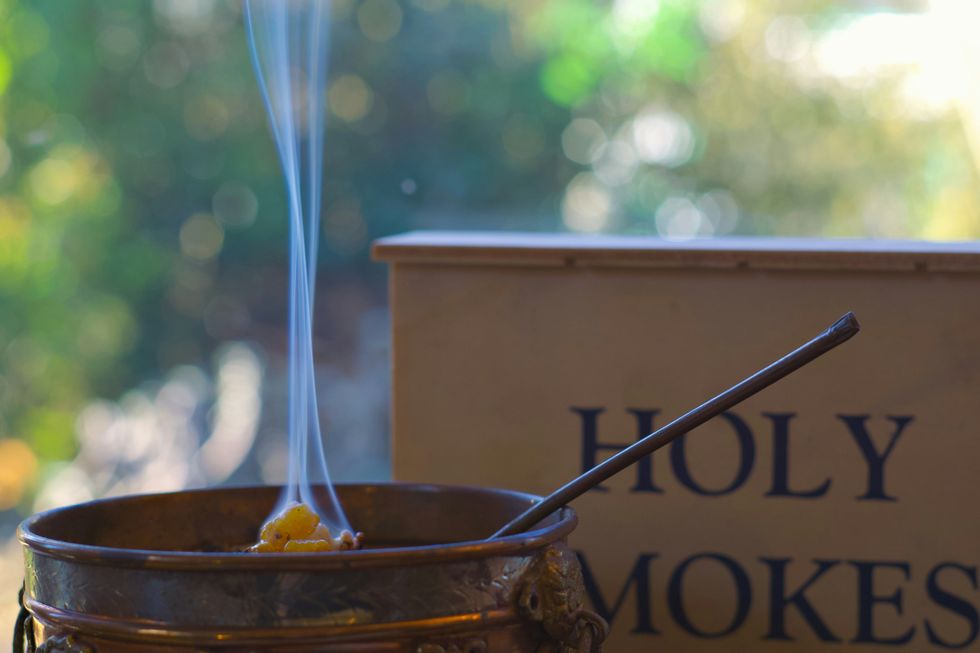
Unsplash
Although, typically, when people think about frankincense (and myrrh), it’s in the context of the gifts that the wise men brought Christ after he was born; it’s a part of the biblical Christmas story. However, frankincense goes much deeper than that. Sexually, since it has an earthy and spicy scent, some people like to use it to meditate (check out “What Exactly Is 'Orgasmic Meditation'?”). Also, since it has the ability to put you in a better mood, soothe and soften your skin and maintain your oral health — with the help of frankincense, every touch and kiss can be that much…sexier.
3. Cinnamon
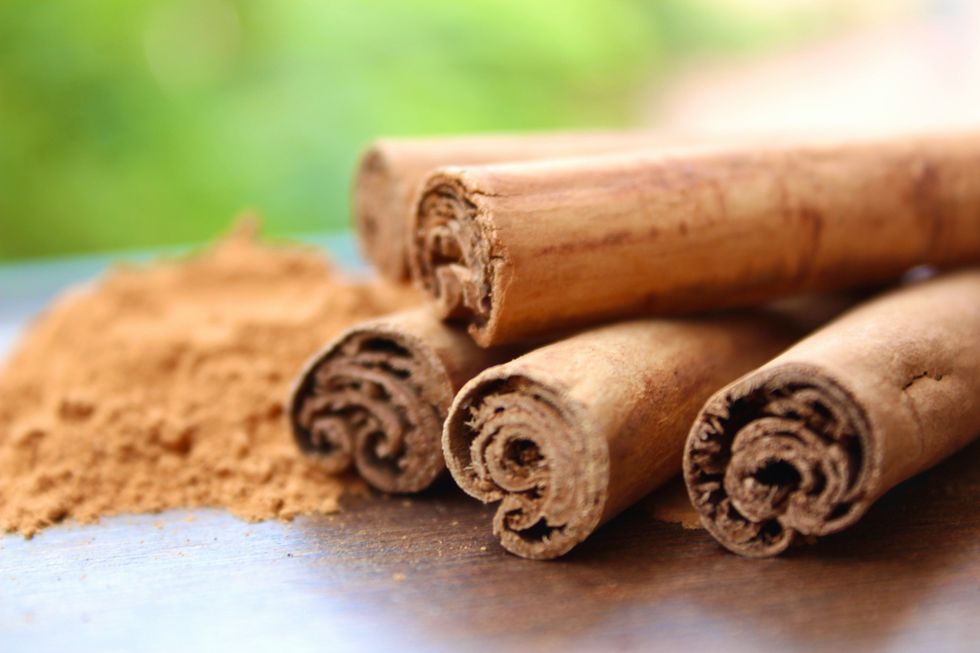
Unsplash
I already gave cinnamon a shout-out in the intro. Personally, I’ve been a fan of it, in the sex department, for a long time now (check out “12 ‘Sex Condiments’ That Can Make Coitus Even More...Delicious”). When it’s in oil form, it can be very sweet to the taste while sending a warm sensation throughout the body — which is why the giver and receiver of oral sex can benefit from its usage. Beyond that, cinnamon helps to increase blood flow to your genital region, elevate sexual desire and, some studies say that it can even help improve fertility. Beautiful.
4. Peppermint
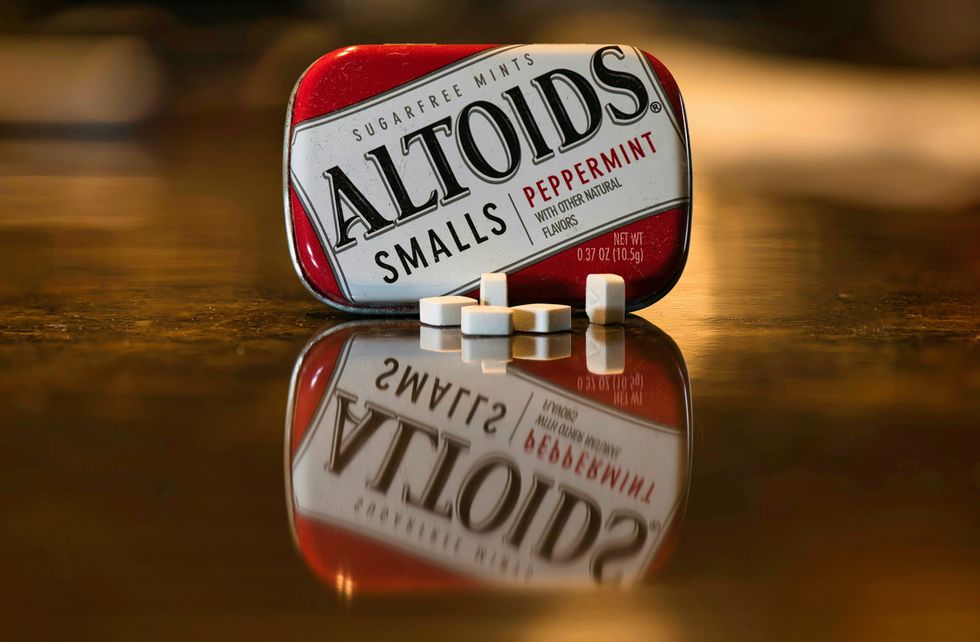
Unsplash
If there’s a signature candy for the holiday season, it’s probably a candy cane — which automatically puts peppermint in the running for being an official holiday scent. Pretty much, in any form, it’s got your sex life’s back because it’s hailed as being a sexual stimulant; in part, because its smell is so invigorating. Plus, it helps to (eh hem) ease headaches, it gives you more energy and it can definitely help to freshen your breath. Also, that minty sensation? The same thing that I said about cinnamon can apply to peppermint too (if you catch my drift).
5. Ginger
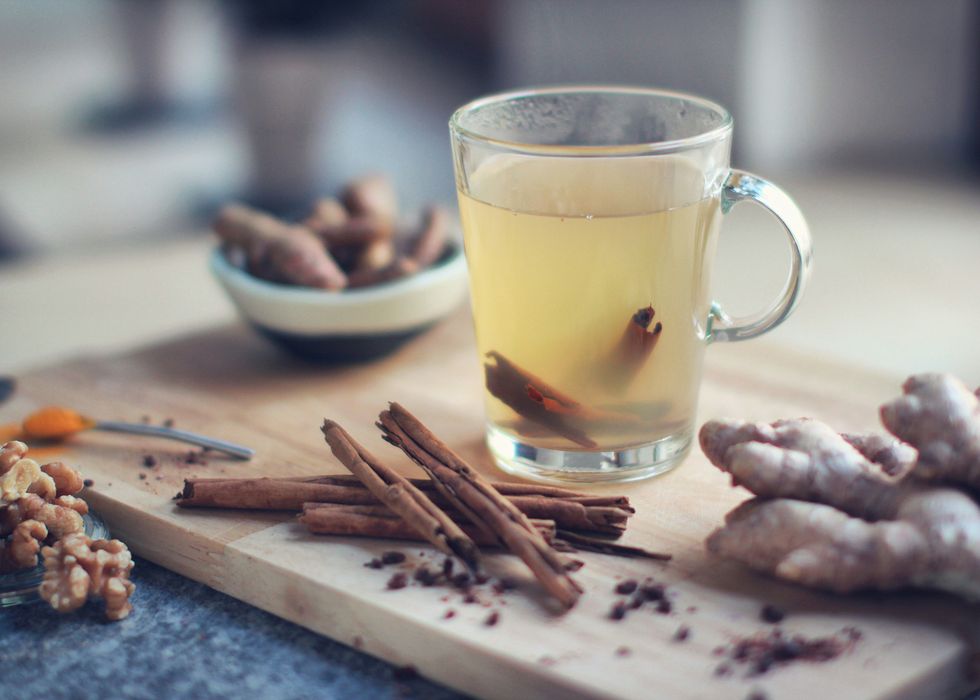
Unsplash
Whether it’s in a meal or in your bedroom, ginger is going to produce results that are hella spicy. On the sex tip, science has praised ginger for being able to increase sexual arousal, improve blood circulation (which intensifies orgasms) and strengthen fertility for many years. Scent-wise, I find it to be one that both men and women enjoy because it is both woodsy and sweet. So, if you’ve got some massage oil in mind, adding some ginger is a way to please you both.
6. Pomegranate
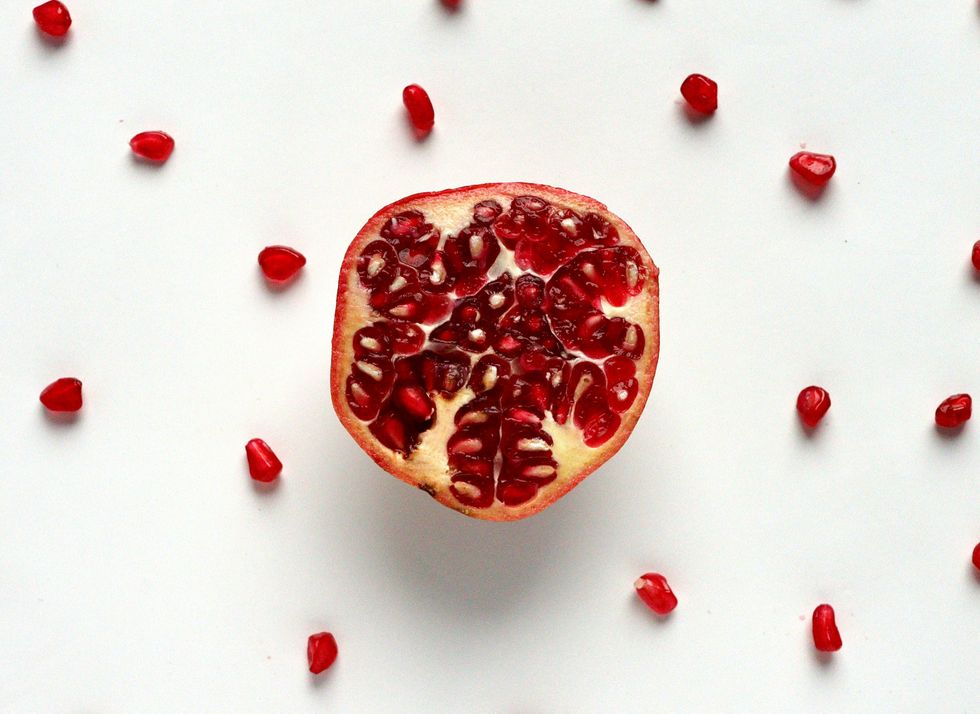
Unsplash
September through December is the time of year when pomegranates are considered to be in season. And, as someone who is a Rosh Hashanah observer, I have a personal adoration for them because I am aware of the various things that they symbolize in Hebrew culture including the fact that they are a fruit that represents love and fertility. So yeah, they would absolutely be an aphrodisiac — one that is perfect for this time of the year. While consuming it helps to boost testosterone levels in both men and women, the floral bittersweet smell that it produces can help to reduce stress while promoting relaxation (like most floral scents do) — and the more relaxed you are, the easier it is to climax.
7. Nutmeg
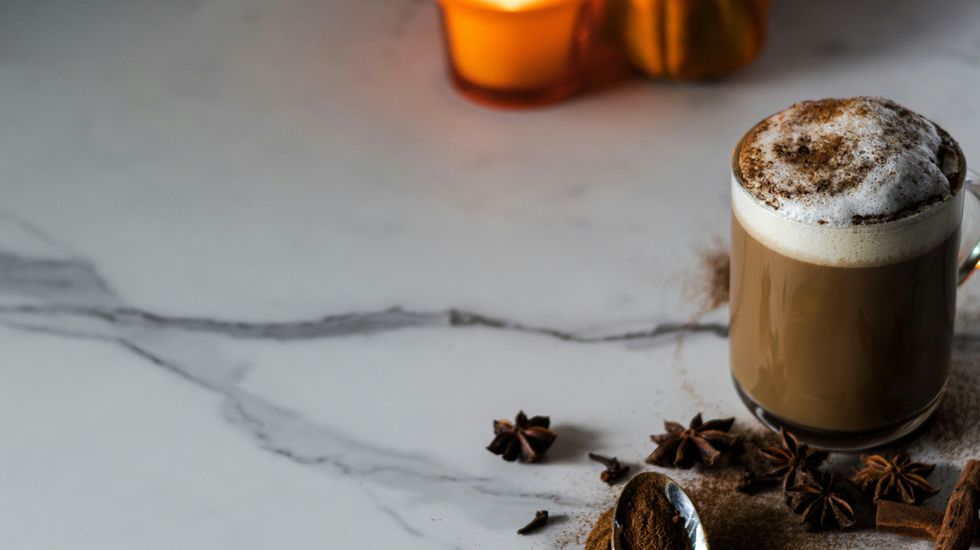
Unsplash
Another signature seasoning during the holiday season is nutmeg. It’s perfect in Thanksgiving sweet potato (or pumpkin) pie and Christmas morning French toast. And yes, it can also make your sex life better. If you consume it, it can intensify your libido and, overall, its warm-meets-spicy-meets-sweet smell is so inviting that it is considered to be a pretty seductive scent.
8. Cloves
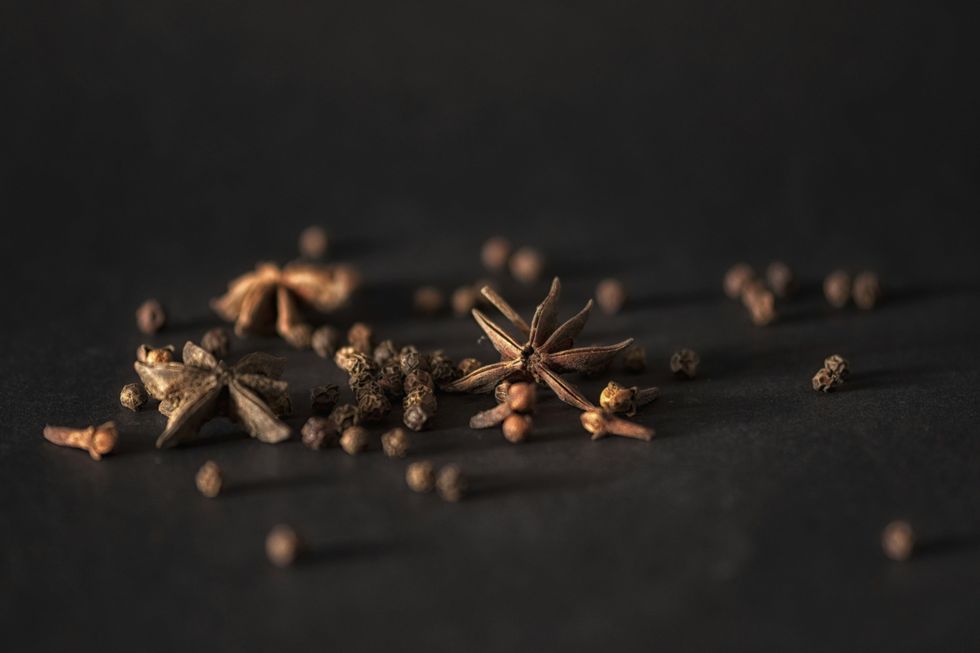
Unsplash
I ain’t got not one lie to tell you — if you’ve got a toothache, put some clove oil on that bad boy and send me a Christmas present for putting you on game. Aside from that, as I round all of this out, cloves are another holiday scent that can do wonders for your sex life. For men, it has the ability to significantly increase sexual arousal and improve stamina and endurance. For men and women alike, it also has a reputation for strengthening sexual desire. And for women solely? Well, if you want an all-natural way to increase natural lubrication down below — the scent and and feel (in DILUTED oil form) can make that happen. It can make the holidays especially special…if you know what I mean.
Ah yes — the atmosphere of the holidays and what it can do.
Take it all in! Scent ‘n whatever stimulating that comes with it! #wink
Let’s make things inbox official! Sign up for the xoNecole newsletter for love, wellness, career, and exclusive content delivered straight to your inbox.
Featured image by Giphy



